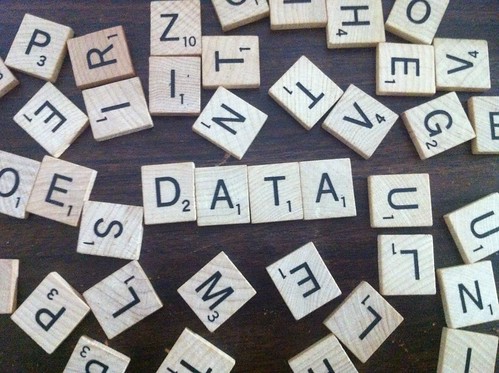 Evidence and data are both an integral part of the scientific method - or so I thought. Here I was thinking that logic should provide a foundation for clinical reasoning and critical thinking. Crazy me.
Evidence and data are both an integral part of the scientific method - or so I thought. Here I was thinking that logic should provide a foundation for clinical reasoning and critical thinking. Crazy me.
If you are going through the effort and the expense (both in time and dollars) to collect data and accrue evidence, then wouldn't the next step be to utilize it?
Not if the evidence contradicts your current beliefs. Then you have a mess on your hands.
Evidence is ignored on a regular basis. And for a variety of reasons - none of which are positive in the long term.
This happens for a variety of reasons. Typically, the inciting force is a disparity between the evidence and the currently-held beliefs and "accepted standards". The bigger the disparity, the greater the challenge to integrate the data - and the greater emotional resistance to not do so.
It can be ignored because of personal or community beliefs, political agendas, professional turf battles ... you name it. Even the best, most compelling evidence can be ignored. Why? Because it requires us to acknowledge the limitations of what we currently know (and believe). Evidence forces us to hold ourselves accountable to science. And sometimes we just don't want to do that for reasons unrelated to the evidence itself.
Evidence is not about being "right" or "wrong". It is not about ego defense. It is not about power. Or at least it shouldn't be.
It is what it is. Evidence is about solving problems and finding better solutions than perhaps you would have established without the data.
When the evidence is ignored, you get to experience "spin". You've heard it before - all the varieties of rationalization and camouflage and subversion that spring into action when the evidence gets disconcerting, when the evidence goes counter to our beliefs or our pocketbook.
Here is a fine example:
"We don't know what is best for low back pain".
It's a nice, comfy, non-threatening, open-ended statement. But you know what? We have had some sound scientific evidence for quite some time. However, many just choose to ignore the global reality of clinical guidelines. You can accept that evidence - and integrate it - or ignore the evidence - and keep on applying that TENS machine, and make sure you put a hot pack on top - three times a week for eternity, if you will.
Evidence is solution-oriented. Any time the evidence is ignored, for whatever reason, there cannot be a positive long-term solution. Sure, it might keep you comfortable and economically viable for the short-term. But in the end, everyone suffers for it - in costs, in outcomes, in efficacy.
If you present yourself as one to support the evidence and the values contained within, then don't just pay lip service to it. Use it. Otherwise, save the research dollars, save the discussion and debate and the breath they entail, and just do whatever you want to do. At least your motives will be clear that way.
Photo credits: justgrimes
 "Running Injuries: Etiology And Recovery- Based Treatment" (co-author Bridget Clark, PT) appears in the third edition and fourth editions of "Clinical Orthopaedic Rehabilitation: A Team Approach" by Charles Giangarra, MD and Robert C. Manske, PT.
"Running Injuries: Etiology And Recovery- Based Treatment" (co-author Bridget Clark, PT) appears in the third edition and fourth editions of "Clinical Orthopaedic Rehabilitation: A Team Approach" by Charles Giangarra, MD and Robert C. Manske, PT.
 Allan Besselink, PT, DPT, Ph.D., Dip.MDT has a unique voice in the world of sports, education, and health care. Read more about Allan here.
Allan Besselink, PT, DPT, Ph.D., Dip.MDT has a unique voice in the world of sports, education, and health care. Read more about Allan here.
 Top 5 finalist in three categories: "Best Overall Blog", "Best PT Blog" and "Best Advocacy Blog".
Top 5 finalist in three categories: "Best Overall Blog", "Best PT Blog" and "Best Advocacy Blog".